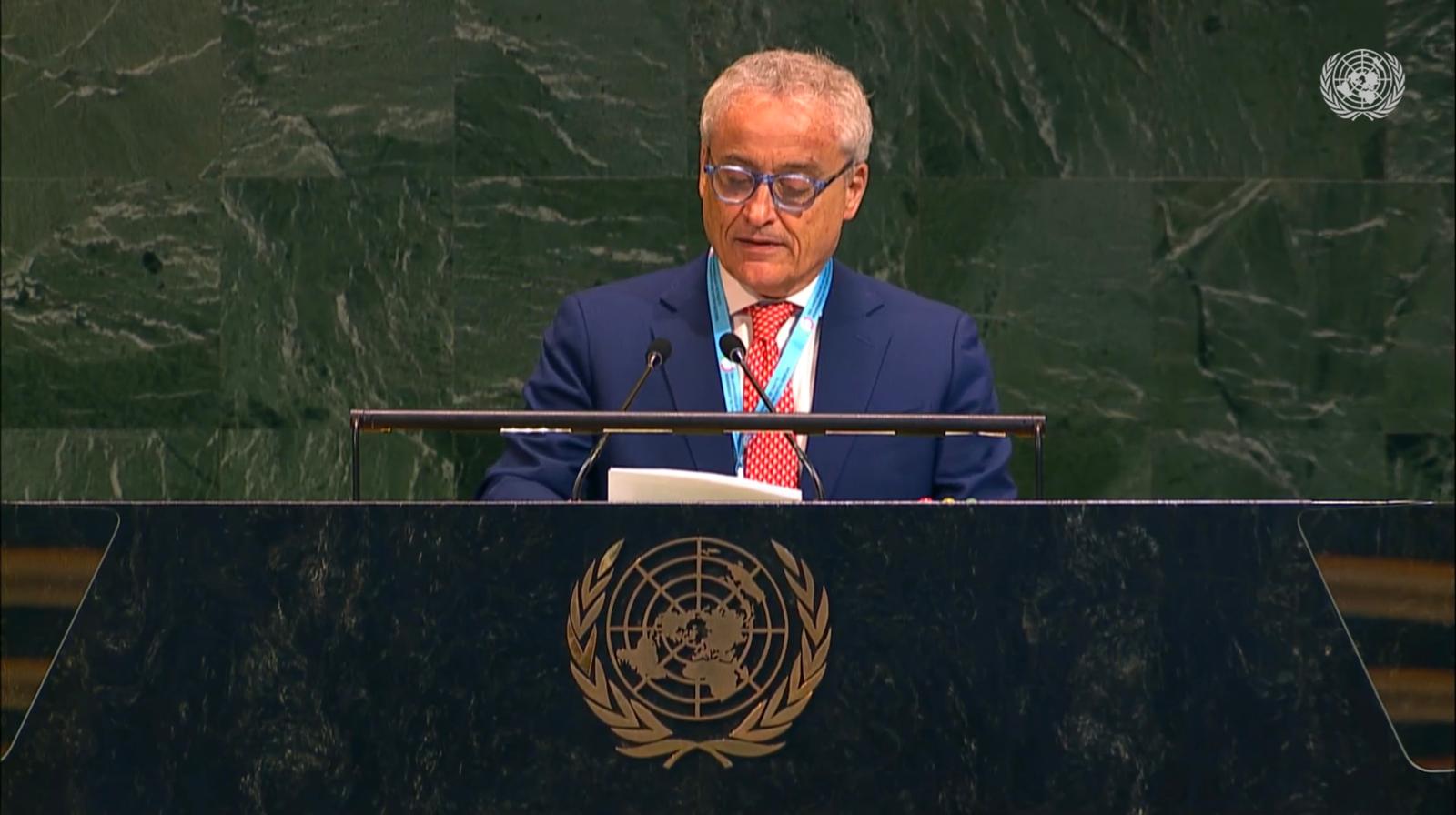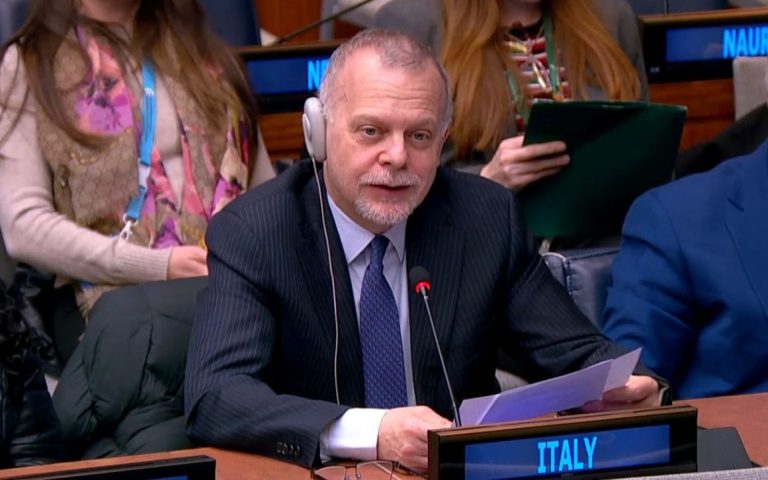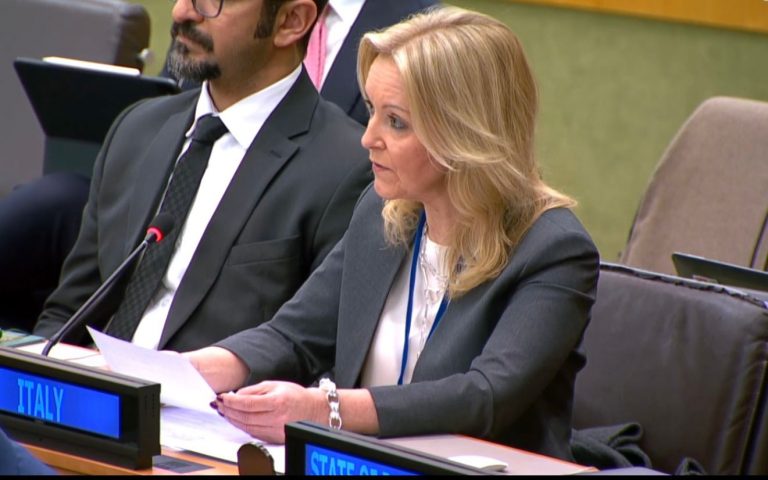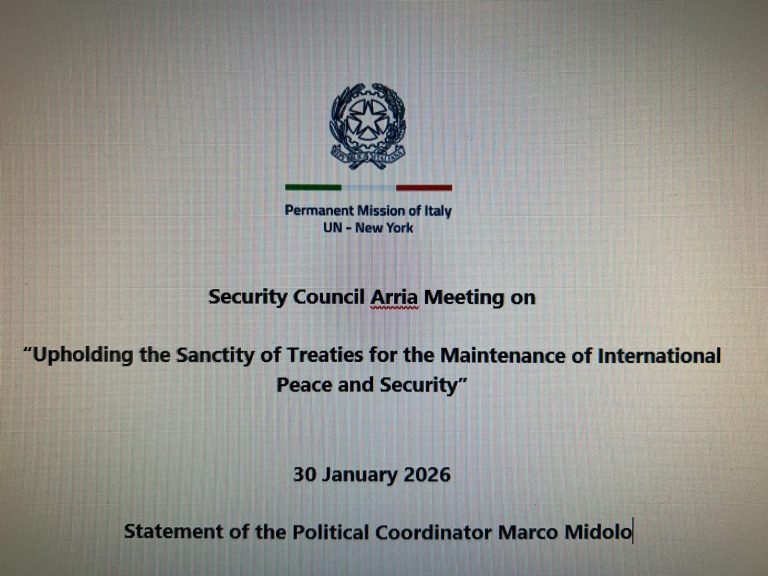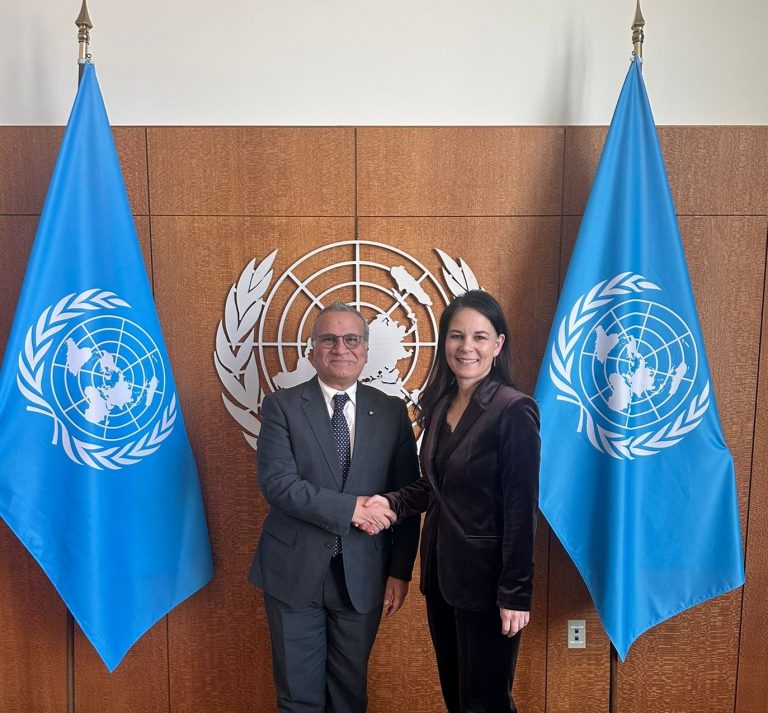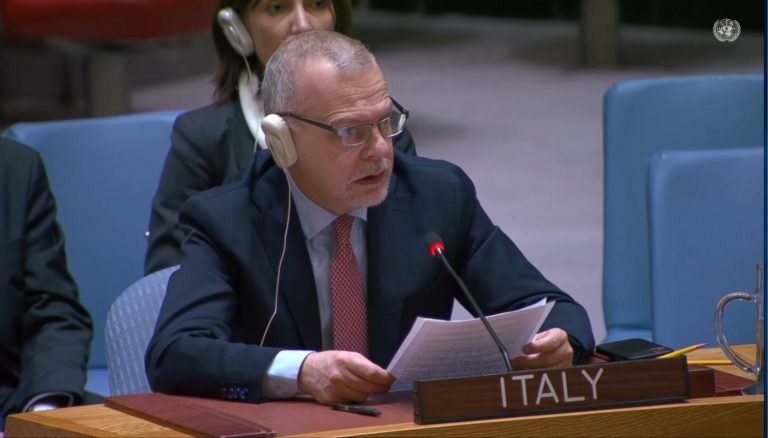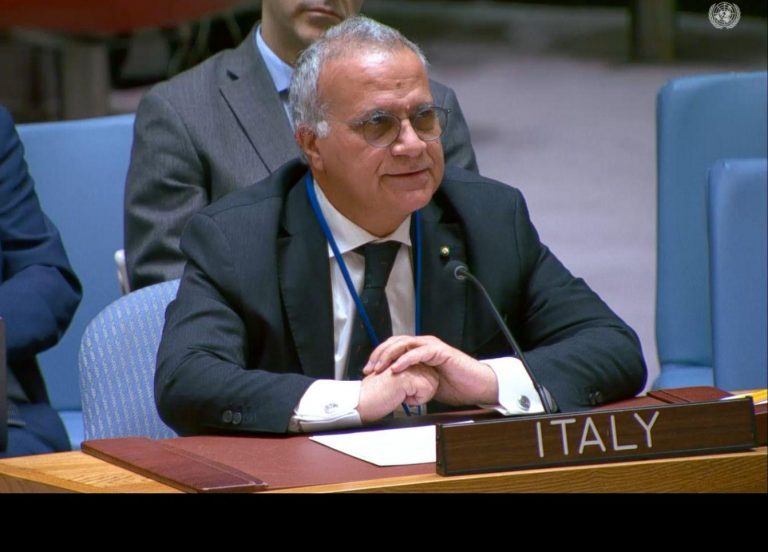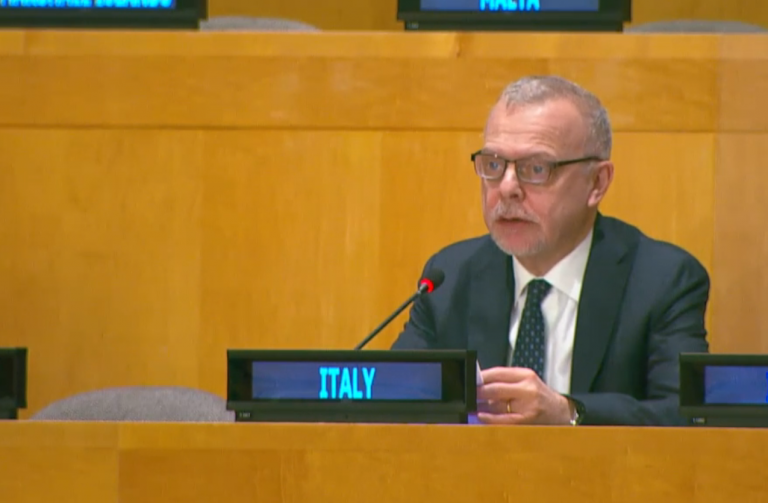Mister President of the General Assembly,
Mister Secretary General,
Madame President of the Security Council,
Mister President of the Economic and Social Council,
Mister President of the International Court of Justice,
Ladies and gentlemen, dear friends,
I am honored to deliver this statement on behalf of Albania, Austria, Bulgaria, Cambodia, Finland, Hungary, Ireland, Jordan, Lao PDR, Libya, Nepal, Portugal, Romania, Spain, Sri Lanka and my own country Italy.
Today, as we commemorate the eightieth anniversary of the signing of the UN Charter, our countries also celebrate another momentous recurrence: the seventieth anniversary of our collective membership in the UN.
With unique journeys leading to the membership, our collective admission to the United Nations on December 14, 1955, marked a significant moment. After a ten-year wait, during which several vetoes prevented many of our countries from joining the Organization, our collective admission to the UN was a testament to the transformed Post-World War II global landscape and to the shifting dynamics of world politics in the mid-20th century.
For our countries, joining the UN was not only a diplomatic achievement but also a powerful statement in support of global multilateralism and of the UN Charter.
The event also represented a turning point in the history of the United Nations itself, as the Organization expanded to include many more nations from different regions, reflecting its universal spirit. That day marked the beginning of a long history of collaboration between our countries and the largest global organization, where each of us has played an active role, engaging from our different positions and experiences with the common aim to collectively address global challenges.
Our common aspiration to join the UN reflected our commitment to multilateralism and the determination to collaborate in the creation of a more just, safe and sustainable world, in which the rights of every people and every person can be fully recognized. We believe that multilateralism, grounded in the principles undergirding the Charter, remains indispensable to enable all countries to pursue sustainable development in accordance with their national circumstances and priorities. Today the UN faces many challenges that are global in nature and that therefore require global solutions. Based on our own experience, we can attest that the UN remains the only institution with the necessary universal legitimacy to address such challenges in a win-win spirit leaving no one behind.
The Charter of the United Nations, which followed the San Francisco Conference, established fundamental principles with great foresight: respect for national sovereignty, the right to self-determination of peoples, the obligation to resolve international disputes through peaceful means, promoting and respecting human rights and the dignity and fundamental freedoms of all individuals, without distinction of ethnicity, religion, social origin or other characteristics. These principles remain valid today and they should be respected by all.
The UN Charter remains our collective Constitution that guarantees equality between peoples, equality between States – large and small – and the recognition of each State’s sovereignty, territorial integrity and independence. It is a binding commitment to international peace, security, and global sustainable development. Our shared future depends on an international order rooted in mutual respect, and dialogue.
70 years since joining the Organization, we want to reaffirm our collective, unwavering commitment to the rules and principles set forth in the Charter. We represent sixteen countries from three continents and many different regions. Sixteen countries with a very diverse cultural, historical and social background. No matter our differences, what unites us will always be more than what differentiates us because we all aim at the same goals – sustainable peace and prosperity based on justice, equality and human rights for all.
As we celebrate this milestone, 2025 is unfortunately recording the highest number of conflicts since the World War II, with all their dramatic consequences for civilian populations, including innocent women and children. Faced with this reality, just as 80 years ago, multilateralism and dialogue are the only possible response to put an end to violence.
Ladies and gentlemen, dear friends, the UN belongs to all of us. Together, we continue to defend the Charter of the United Nations and its fundamental principles of peace, sovereign equality, cooperation and respect between peoples that unite us all.
Thank you.







